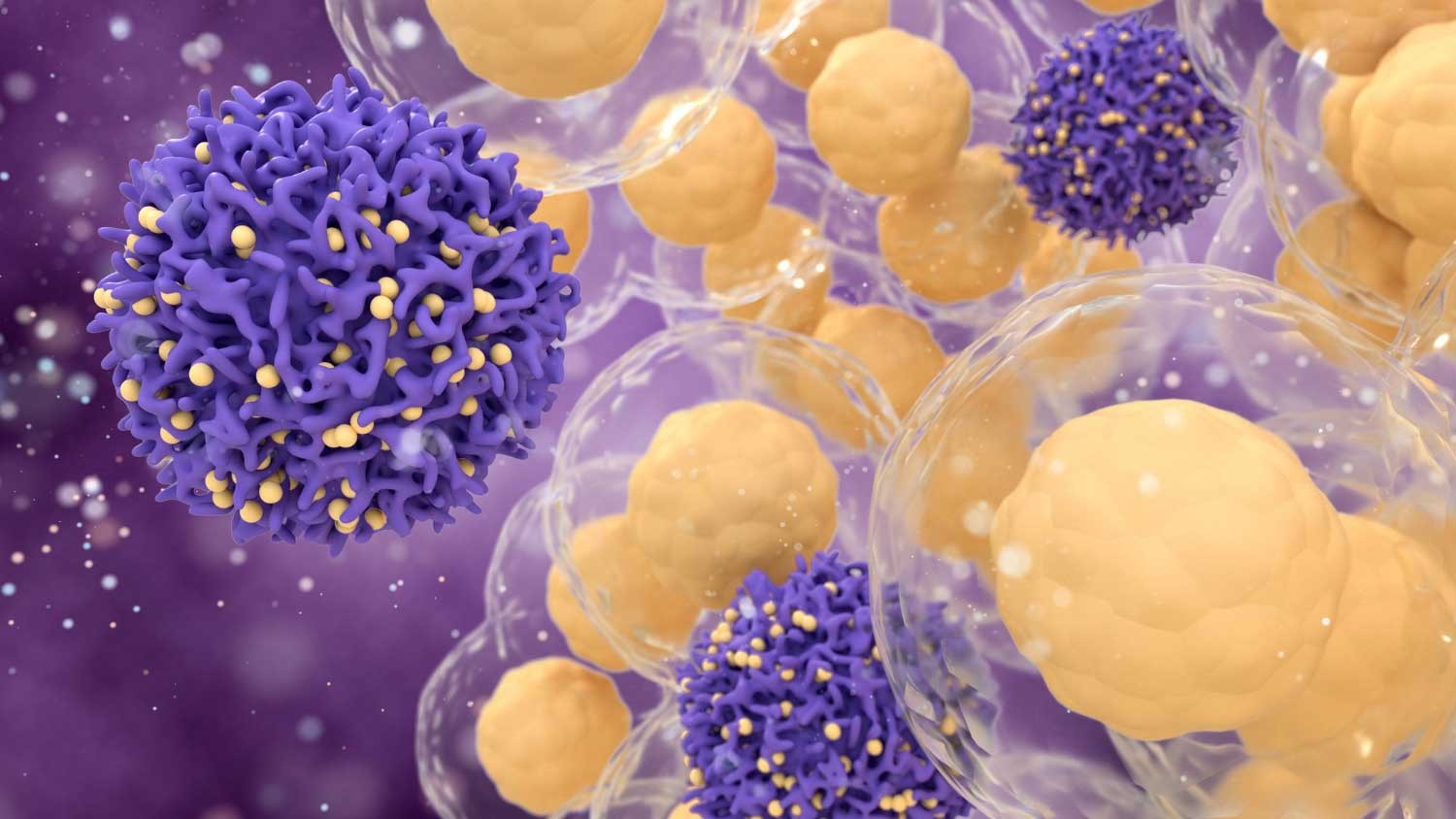Top 6 SuperFoods That Can 'Starve' Cancer
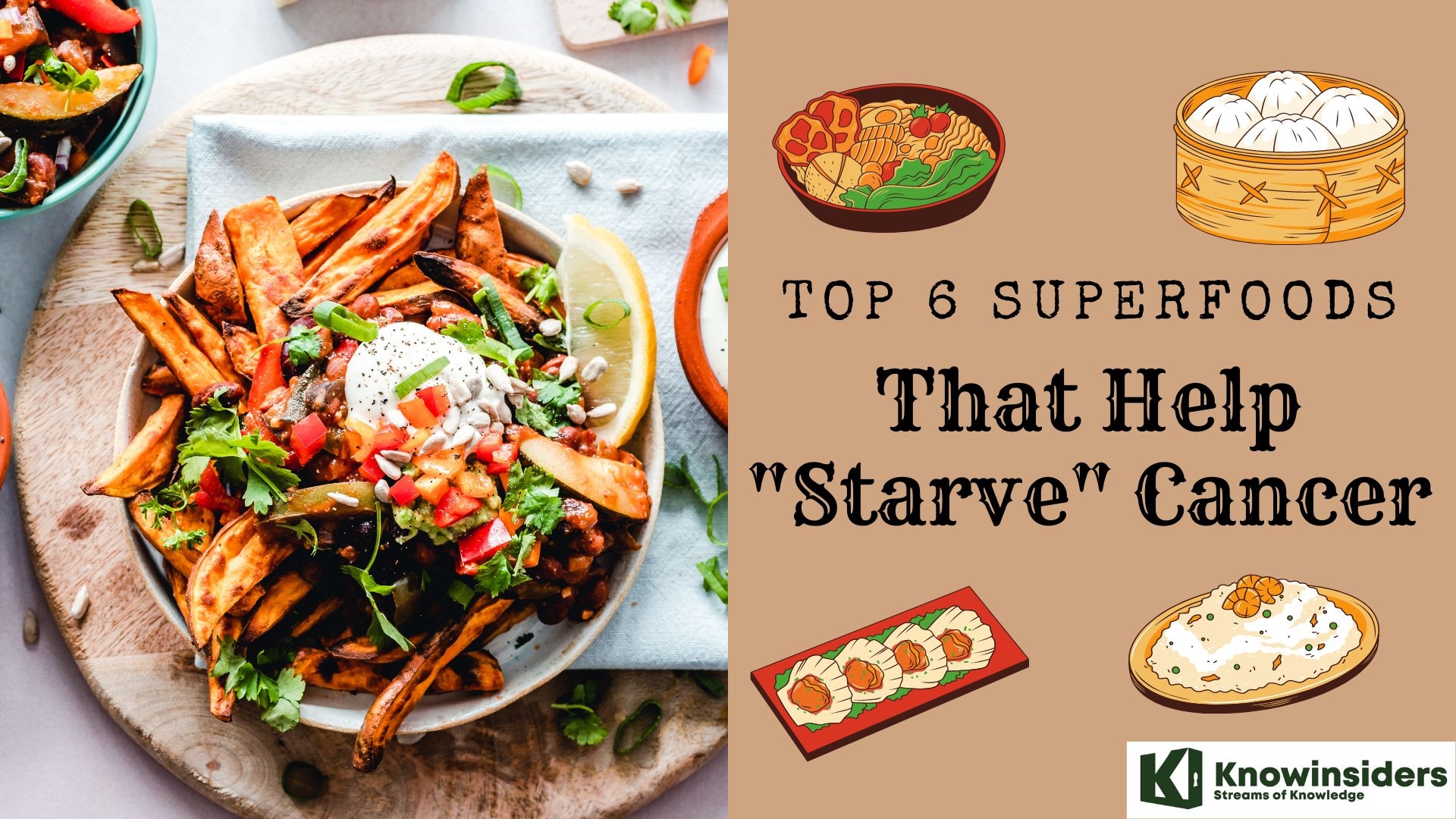 |
| Top 6 Superfoods That Can “Starve” Cancer Knowinsiders.com |
| Table of Content |
When it comes to cancer-fighting foods, you can't beat the power of produce and plant-based foods. Certain fruits, vegetables, nuts, beans, oats, whole grains, spices and teas provide unique benefits not found in other foods. These benefits help reduce the risks of certain cancers and can even slow tumor growth and recurrence. Most of these plant-based foods provide plenty of other health benefits too.
Take a look at these superfoods that help slowing down cancer cells and giving you strength to fight cancer.
How your eating can affect the growth of your cancer cells
The foods we eat can affect our risk of developing certain types of cancer. High-energy and high-fat diets can lead to obesity and are generally thought to increase the risk of some cancers.
Eating a wide variety of foods from each of the five food groups, in the amounts recommended helps maintain a healthy and interesting diet and provides a range of different nutrients to the body. Eating a variety of foods promotes good health and can help reduce the risk of disease.
The five food groups are:
→ fruit
→ vegetables and legumes/beans
→ lean meats and poultry, fish, eggs, tofu, nuts and seeds, legumes/beans
→ grain (cereal) foods, mostly wholegrain and/or high cereal fibre varieties
→ milk, yoghurt, cheese and alternatives, mostly reduced fat.
Foods are grouped together because they provide similar amounts of key nutrients. For example, key nutrients of the milk, yoghurt, cheese and alternatives group include calcium and protein. These food groups make up the Australian Guide to Healthy Eating.
Diet is just one of the lifestyle factors that influence the risk of developing cancer. Smoking, obesity, alcohol, sun exposure and physical activity levels are also important. Although some foods can affect cancer risk, there is no evidence that specific foods can cause or cure cancer.
Grains help to protect against cancer
Eating seven or more serves daily of a variety of grains, grain products, legumes, roots and tubers will also provide protective benefits against cancer. The less processed the grains, the better, so try to aim for wholegrain foods. Oats, brown rice, corn, rye, kidney beans and lentils are all good foods to consume. Diets high in refined starch and refined sugar may increase the risk of stomach cancer and bowel cancer.
Meat and bowel cancer
There is now convincing scientific evidence that eating processed meat increases bowel cancer risk. The World Cancer Research Fund (WCRF) has recently recommended that people avoid eating processed meat. Processed meats include any meat that has been preserved by curing, salting or smoking, or by adding chemical preservatives. These include hot dogs, ham, bacon, and some sausages and burgers.
It is recommended that children are not given processed meats. This is because many of the habits we develop as children last into adulthood. Substitutes for processed meats that are recommended for children include fish or lean poultry, lean meats or low-fat cheese.
There is convincing evidence that red meat also increases a person’s risk of bowel cancer. It is recommended that individuals, particularly men, decrease their intake of red meat. The WCRF recommends limiting the amount of fresh red meat we eat to less than 500 g of cooked (or 700 g uncooked) red meat a week. Some research suggests that eating burnt or charred meat may increase cancer risk, but the evidence is unclear.The Australian Guide to Healthy Eating recommends consuming a range of variety of foods from the food group ‘lean meats and poultry, fish, eggs, tofu, nuts and seeds and legumes and beans.’
Fats and cancer
There has been a great deal of interest in a possible link between fat and cancer. Current evidence does not indicate a direct link between fat intake and particular types of cancer (with the possible exception of prostate cancer). However, a high-fat diet may lead to obesity, which is a risk factor for several cancers, including cancers of the colon, breast, kidney, oesophagus, gallbladder and endometrium.
Fruits, vegetables and cancer
Eating fruit and vegetables has long been known to provide many health benefits. Fruits and vegetables contain many vitamins, minerals and antioxidants, which may help to decrease your risk of cancer in particular areas of the digestive system, such as the mouth and stomach.
Evidence has weakened over recent years over the role of fruit and vegetables in preventing cancer. Yet fruits and vegetables are still an important part of your diet and may play an indirect effect of preventing cancer because they are relatively low in kilojoules (energy) and consumption is associated with a healthier weight.
How To Starve Cancer With Food? - According Dr. William Li
What we eat matters. And when it comes to fighting cancer, many believe that it is possible to starve cancer with the foods we put into our bodies. One believer is Dr. William Li, (www.angio.org), who claims that eating cancer-fighting foods cuts off the supply lines that feed cancer cells (or anti-angiogenesis).
WHAT IS ANTI-ANIOGENESIS?
Anti-angiogenesis are foods and drugs that prevent our bodies from producing blood vessels, particularly to cancer tumors. It is the body’s way of taking care of problems. A little angiogenesis is a good thing. Pregnant women use it to nourish their baby growing inside of them. Wounds use it to properly heal. However, when your body goes crazy and starts trying to heal pre-cancer tumors, then you have problems.
WHY FOCUS ON ANTI-ANGIOGENESIS?
About half of the population aged 50 and over already have tumors that, if they are fed, could lead to cancer. Anti-angiogenesis prevents these cancer cells from ever starting. Wouldn’t it be awesome if we could stop cancer in its track? It can also help cancer patients from relapsing. Essentially, keep the dormant cancer, dormant.
A completely other side is starving cancer. Without blood, cancer cannot survive. Like any cell, cancer needs oxygen and energy, both of which are providing by blood. So if we are able to stop blood from getting to the cancer by drying up the capillaries (tiny blood vessels), then we can stop cancer right in its tracks.
HOW CAN WE START TODAY, WITHOUT A PRESCRIPTION?
We can start today by eating these healthy foods:
- Strawberries
- Black berries
- Raspberries
- Blueberries
- Oranges
- Grapefruits
- Lemons
- Apples
- Pineapples
- Cherries
- Red Grapes
- Red Wine
- Green Tea
- Bok Choy
- Kale
- Soy beans
- Ginseng
- Maitke Mushrooms
- Licorice
- Nutmeg
- Artichokes
- Lavendar
- Pumpkin
- Sea Cucumber
- Tuna
- Parsley
- Garlic
- Tomato
- Olive Oil
- Grape Seed Oil
- Dark Chocolate
So pretty much, just eat dark Chocolate covered strawberries for every meal! But really, these foods are delicious and easy to incorporate into a diet, if they are not already in your daily intake. In fact, many of these are already accepted staple fruits, such as apples, oranges, and strawberries.
Pumpkin can be mixed into just about anything in the fall. Dark chocolate is always a good idea. So maybe if we put down our French fries and pick up some kale chips, we’ll feel better and fight cancer. Regardless if you believe in this or not, eating healthy is a good choice no matter who you are or how your health is.
What Are The SuperFoods That Help Slowing Down Cancer Growth?
1. Green Tea
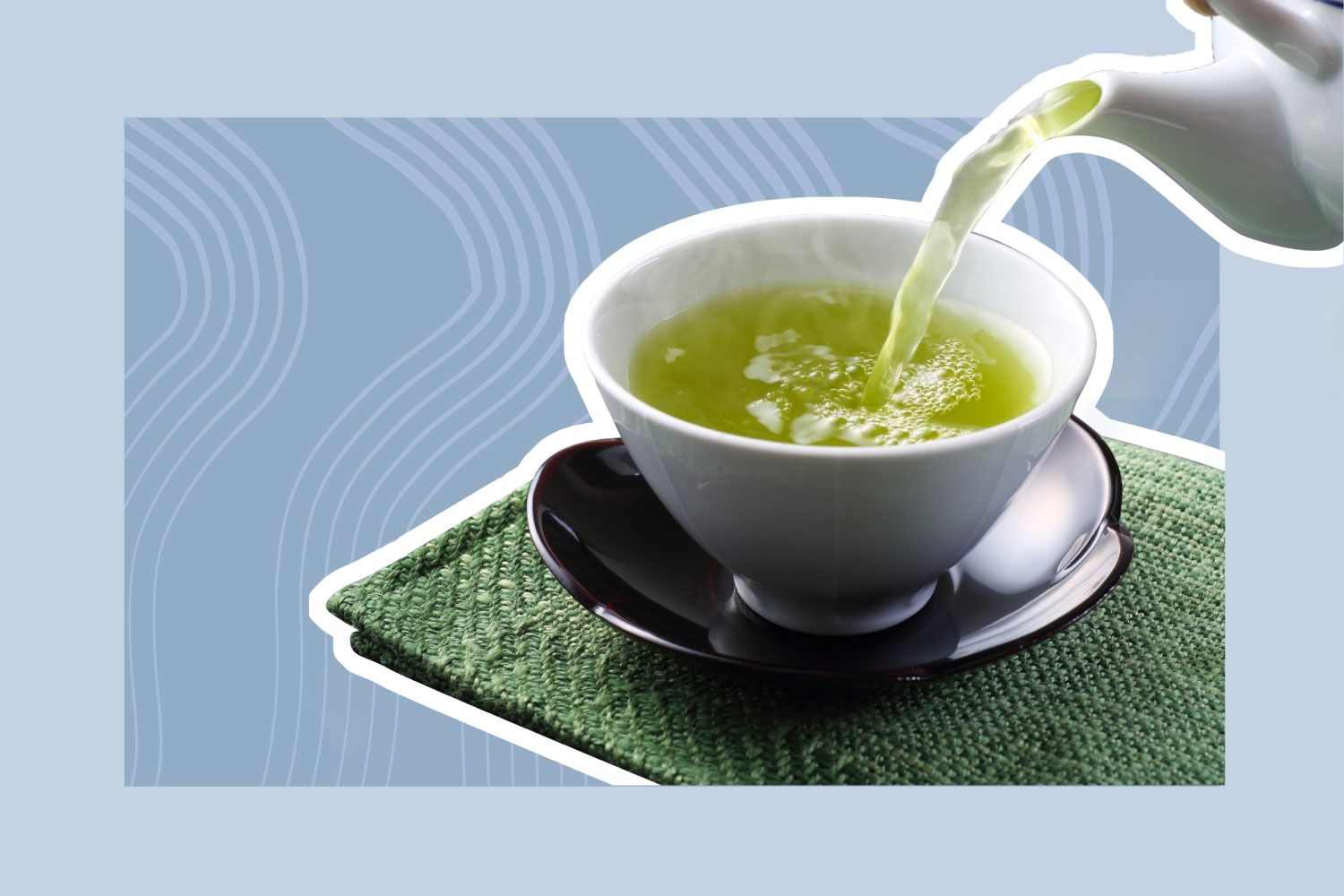 |
| Photo: The Spruce Eats |
The leaves of the tea plant (Camellia sinensis) contain antioxidants called catechins, which may help prevent cancer in a variety of ways, including keeping free radicals from damaging cells. Lab studies have found that catechins in tea can shrink tumors and reduce tumor cell growth. Some — but not all — studies in humans have also linked drinking tea to a lower risk of cancer. Both green and black teas contain catechins, but you’ll get more antioxidants from green tea, so you may want to consider a cup or more per day in your anti-cancer diet.
There is no clear evidence that green tea can help to cure cancer. Green tea is made from the dried leaves of the plant Camellia sinensis, and contains chemicals known as polyphenols. These are antioxidants that may help to prevent DNA damage caused by free radicals, and this is why some people think that tea can help to prevent or cure cancer. Some laboratory studies have shown that tea polyphenols can stop cancer cells from growing; however, studies in humans show variable results.
In 2009, the internationally respected Cochrane Collaboration reviewed all the clinical studies on the effect of green tea on cancer prevention or death from cancer. The results were conflicting – some showed that green tea could help prevent cancer, some showed that it had no effect and some showed that it increased the risk of some cancers. Subsequent reviews and analyses found similar results. These results are uncertain because there have not been enough studies, the studies that have been done don’t include enough people, they used different amounts of tea, and they may not have accounted for other lifestyle factors that can affect cancer. This means that, overall, the studies on green tea and cancer are inconclusive for all types of cancer, and more large-scale clinical trials need to be done before we can be sure whether green tea helps to prevent or cure cancer.
Drinking green tea in moderate amounts is not associated with any significant harmful effects. However, evaluations by the International Agency for Research on Cancer determined that drinking any very hot beverage (above 65°C) is probably a cause of oesophageal cancer. In order to minimise risk, leave hot drinks to cool for about four minutes after boiling before drinking.
2. Beans, Legumes and Soys
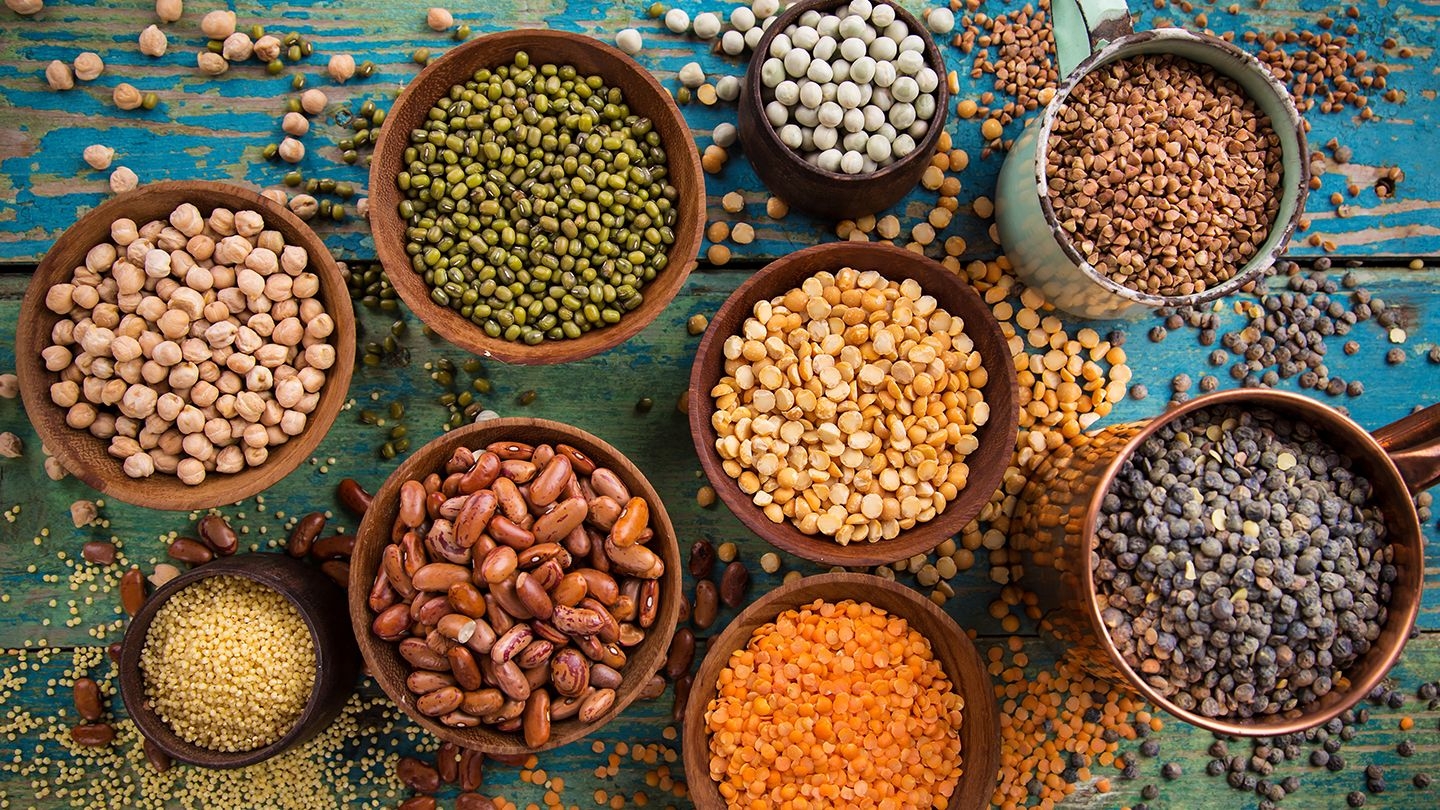 |
| Photo: Getty Images |
Like cruciferous vegetables, beans help prevent and fight cancer in multiple ways. Beans contain cancer-fighting substances, like
- Protease inhibitors, which may slow tumor growth.
- Phytates, which may help prevent or slow certain cancers.
- Manganese, which helps form an enzyme that protects cells from damage.
- Kaempferol and quercetin, which have antioxidant and anti-inflammatory properties.
Beans are best eaten cooked to prevent proteins called lectins from irritating your stomach. Canned beans are slightly less nutritious but still good for you (though you'll want to avoid cans with BPA).
Soy is best eaten organic to avoid GM plants. What you may have heard about soy's danger with hormone-sensitive cancers is untrue. Numerous studies after 2009, including from the American Cancer Society, show soy to be safe with these cancers.
3. Whole Grains Are in the Front Lines Among Foods Fight Cancer
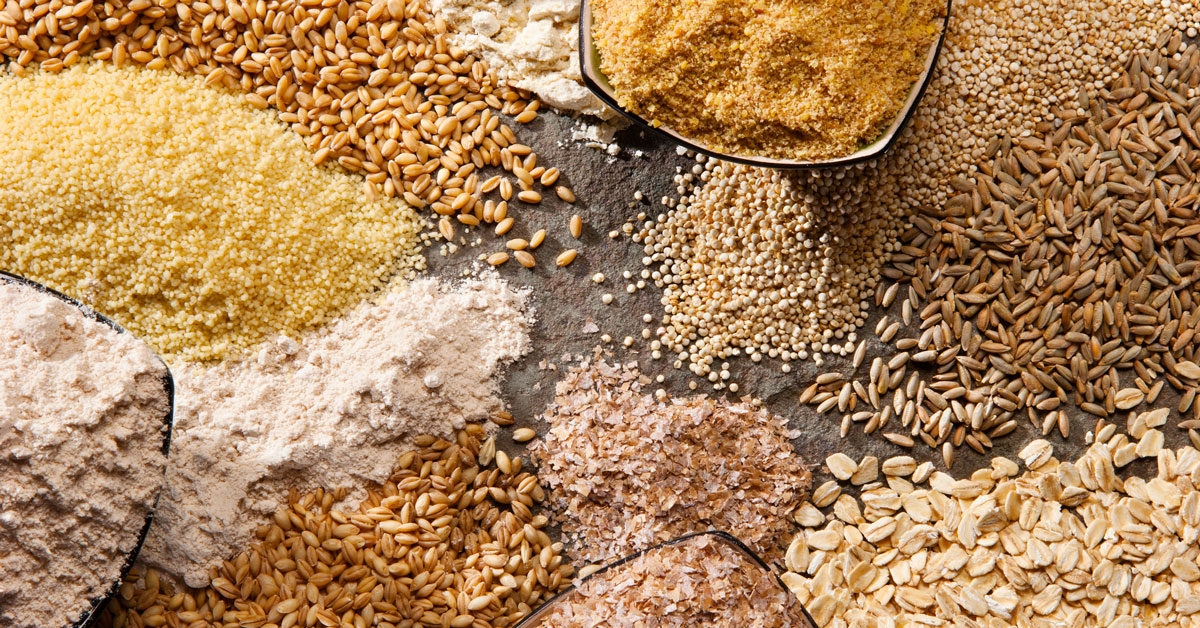 |
| Photo: Everyday Health |
According to the American Institute for Cancer Research, whole grains contain many components that might lower your risk of cancer, including fiber and antioxidants. A large study including nearly half a million people found that eating more whole grains may lower the risk of colorectal cancer, making them a top item in the category of foods to fight cancer. Oatmeal, barley, brown rice, and whole-wheat bread and pasta are all examples of whole grains.
Whole grains provide dietary fiber and nutrients beyond what you can get from refined grains. Emerging research is exploring whether intact whole grains (such as brown rice, farro, bulgur, sorghum and quinoa) offer additional benefits beyond bread, cereals and pasta made from milled, minimally processed whole grain flour.
Accurately assessing people’s consumption of whole grains is challenging, but crucial to study their influence on cancer risk. One indicator is body levels of alkylresorcinol compounds, a measure gaining popularity with researchers. But even this may not capture all forms of whole grains consumed.
After conducting meta-analyses of these studies, the researchers found that eating whole grains every day significantly reduces the risk of colorectal cancer, while the intake of processed meats raises the risk.
More specifically, eating more than 500 grams of cooked red meat (such as pork, beef, or lamb) every week raises the odds of developing colorectal cancer, with every 100 grams per day further increasing the risk by 12 percent.
The report also found that consuming more than two alcoholic drinks every day – or the equivalent of 30 grams of alcohol – as well as being overweight or obese further increases the risk.
By contrast, around three daily servings, or 90 grams, of whole grains (including brown rice and whole-wheat bread) can lower the risk of colorectal cancer by 17 percent.
Fruits and vegetables containing vitamin C, as well as fish, also seemed to lower the risk of colorectal cancer, although the evidence was not as clear and more data are needed.
Oranges, grapefruits, strawberries, kiwis, broccoli, spinach, and sweet red pepper are all good sources of vitamin C.
At least 30 minutes of physical activity every day was also found to lower the risk. The review found that the highest levels of physical activity decreased the risk by 20 percent.
4. Cruciferous Vegetables
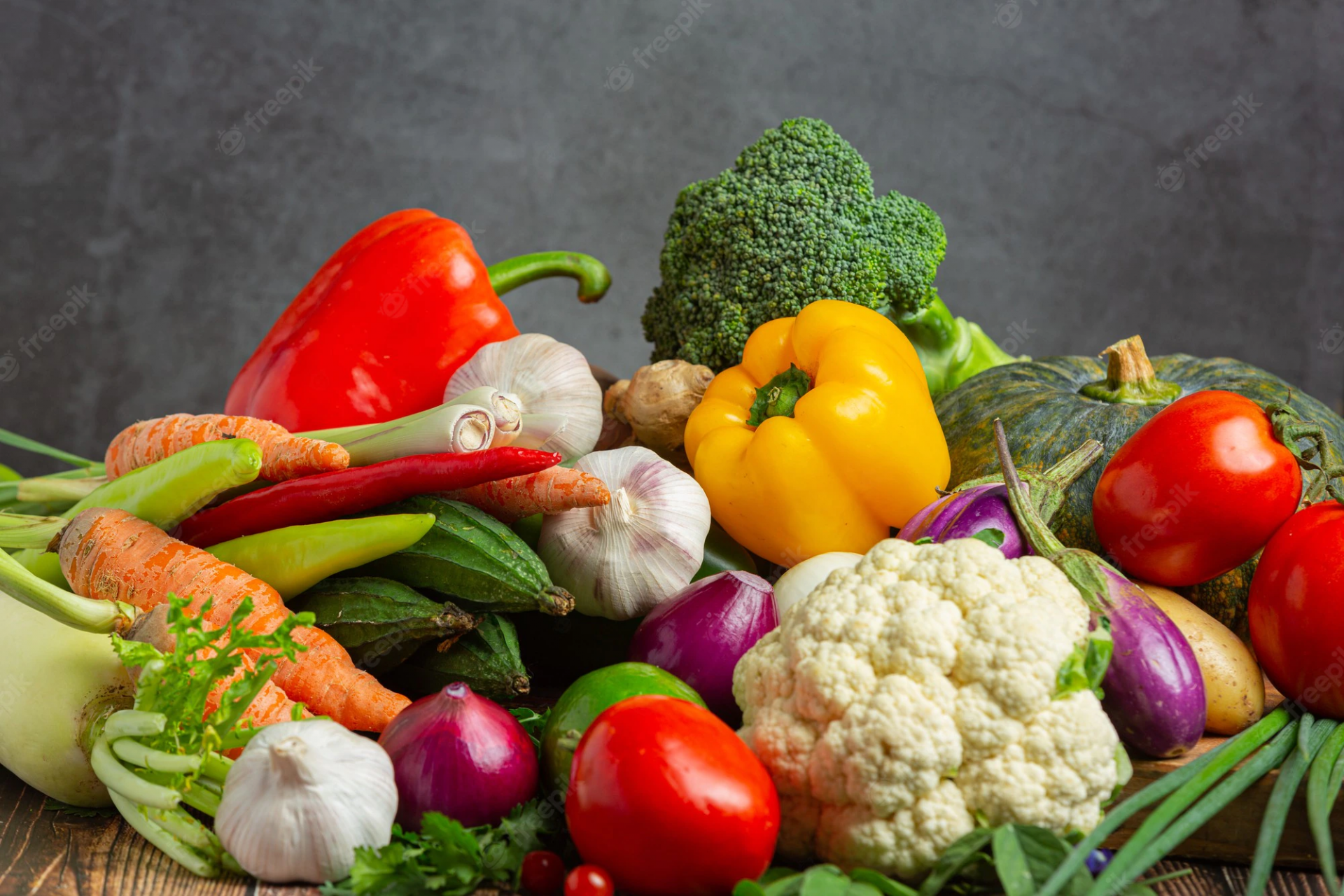 |
| Photo: Freepik |
Cruciferous vegetables, such as broccoli, cauliflower, and kale, contain beneficial nutrients, including vitamin C, vitamin K, and manganese.
Cruciferous vegetables also contain sulforaphane, a plant compound with anticancer properties.
One study shows that sulforaphane significantly inhibits cancer cell growth and stimulates cell death in colon cancer cells.
Another study shows that sulforaphane in combination with genistein, a compound in soybeans, can significantly inhibit breast cancer tumor development and size. Sulforaphane also inhibits histone deacetylase, an enzyme with links to cancer development.
One review recommends 3 to 5 servings of cruciferous vegetables per week for the best cancer-preventive effects.
5. Fatty Fish
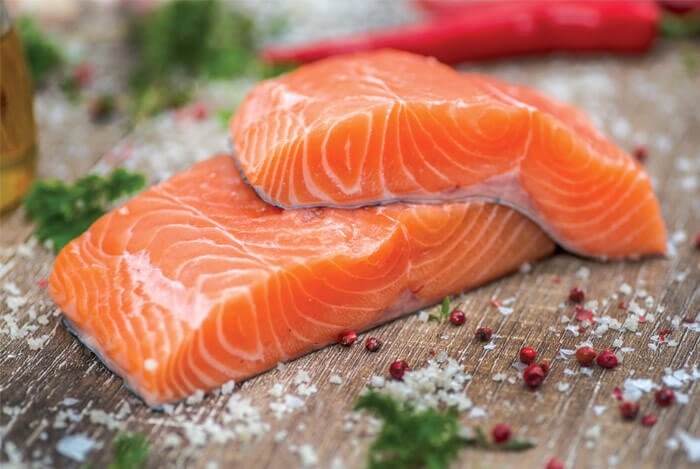 |
| Photo: Getty Images |
Fatty fish, including salmon, mackerel, and anchovies, is rich in essential nutrients, such as vitamin B, potassium, and omega-3 fatty acids.
One study found that people whose diets were high in freshwater fish had a 53 percent lower risk for colorectal cancer than those low in freshwater fish.
Another study found that consumption of fish oil later in life has links to significantly lower risk for prostate cancer.
Finally, a study following 68,109 people found that people who consumed fish oil supplements at least four times a week were 63 percent less likely to develop colon cancer than those who did not.
How much fish should you eat?
Cancer prevention recommendations that are based on strong evidence do not include eating fish because the evidence is not yet strong. However because of the overall health benefits of fish and omega-3 fats, Cancer Council recommends:
- Eating fish (preferably oily) at least twice per week; and
- Including some plant foods and oils rich in omega-3 fats in your diet.
How to boost fish and omega-3 fat intake
Practical and healthy ways to increase the intake of omega-3 fats in the diet include:
- Have grilled or steamed fish with vegetables for dinner.
- Use fish in mixed dishes such as curries, stews, casseroles, pastas and soups.
- Use canned fish to make fish cakes and serve with vegetables.
- Mix canned fish through salad.
- Use canola oil in cooking or canola-based margarine.
- Choose soy and linseed bread.
- Add whole soybeans or tofu in stews, stir fries or soups.
- Eat a small handful of walnuts as a snack.
- Include walnuts when making homemade breads, muffins and cakes.
- Include green leafy vegetables such as broccoli, cabbage and spinach in mixed dishes like curries and stir fries.
- Make green frittata.
6. Apples
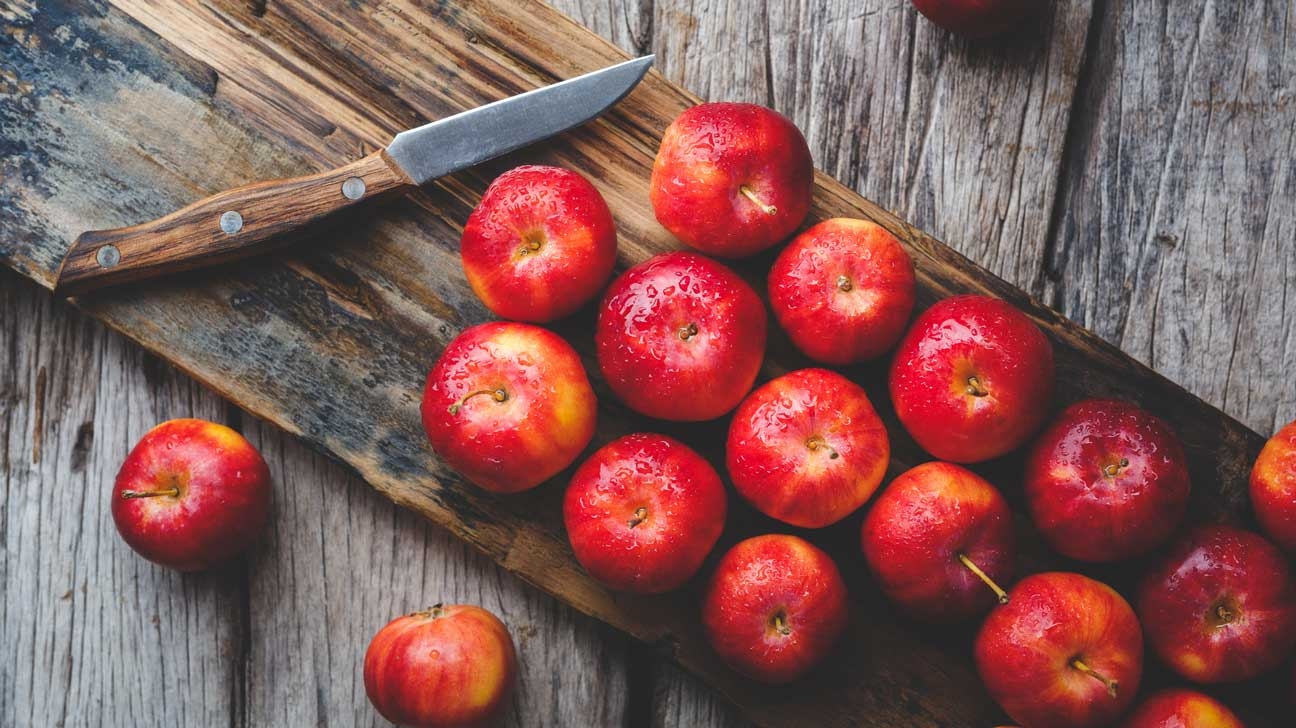 |
| Photo: Healthline |
The phrase “an apple a day keeps the doctor away” actually rings fairly true. Apples contain polyphenols that have promising anticancer properties.
Polyphenols are plant-based compounds that may prevent inflammation, cardiovascular disease, and infections.
Some research suggests that polyphenols possess anticancer and tumor-fighting properties.
For example, the polyphenol phloretin inhibits a protein called glucose transporter 2 (GLUT2) plays a role in advanced-stage cell growth in certain types of cancer.
One study from 2018 in the Journal of Food and Drug Analysis suggests that apple phloretin significantly inhibits the growth of breast cancer cells, while not affecting normal cells.
What Causes Cancer?There is no one single cause for cancer. Scientists believe that it is the interaction of many factors together that produces cancer. The factors involved may be genetic, environmental, or constitutional characteristics of the individual. Diagnosis, treatment, and prognosis for childhood cancers are different than for adult cancers. The main differences are the survival rate and the cause of the cancer. The overall five-year survival rate for childhood cancer is about 80%, while in adult cancers the survival rate is 68%. This difference is thought to be because childhood cancer is more responsive to therapy and a child can tolerate more aggressive therapy. Childhood cancers often occur or begin in the stem cells, which are simple cells capable of producing other types of specialized cells that the body needs. A sporadic (occurs by chance) cell change or mutation is usually what causes childhood cancer. In adults, the type of cell that becomes cancerous is usually an epithelial cell. Epithelial cells line the body cavity and cover the body surface. Cancer occurs from environmental exposures to these cells over time. Adult cancers are sometimes referred to as acquired for this reason. Cancer Risk Factors As mentioned, some cancers, particularly in adults, have been associated with repetitive exposures or risk factors. A risk factor is anything that may increase a person's chance of developing a disease. A risk factor does not necessarily cause the disease, but it may make the body less resistant to it. The following risk factors and mechanisms have been proposed as contributing to cancer: Lifestyle factors. Smoking, a high-fat diet, and working with toxic chemicals are examples of lifestyle choices that may be risk factors for some adult cancers. Most children with cancer, however, are too young to have been exposed to these lifestyle factors for any extended time. Family history, inheritance, and genetics may play an important role in some childhood cancers. It is possible for cancer of varying forms to be present more than once in a family. It is unknown in these circumstances if the disease is caused by a genetic mutation, exposure to chemicals near a family's residence, a combination of these factors, or simply coincidence. Some genetic disorders. For example, Wiskott-Aldrich and Beckwith-Wiedemann syndrome are known to alter the immune system. The immune system is a complex system that functions to protect our bodies from infection and disease. The bone marrow produces cells that later mature and function as part of the immune system. One theory suggests that the cells in the bone marrow, the stem cells, become damaged or defective, so when they reproduce to make more cells, they make abnormal cells or cancer cells. The cause of the defect in the stem cells could be related to an inherited genetic defect or exposure to a virus or toxin. Exposures to certain viruses. Epstein-Barr virus and HIV, the virus that causes AIDS, have been linked to an increased risk of developing certain childhood cancers, such as Hodgkin and non-Hodgkin lymphoma. Possibly, the virus alters a cell in some way. That cell then reproduces an altered cell and, eventually, these alterations become a cancer cell that reproduces more cancer cells. Environmental exposures. Pesticides, fertilizers, and power lines have been researched for a direct link to childhood cancers. There has been evidence of cancer occurring among nonrelated children in certain neighborhoods and/or cities. Whether prenatal or infant exposure to these agents causes cancer, or whether it is a coincidence, is unknown. Some forms of high-dose chemotherapy and radiation. In some cases, children who have been exposed to these agents may develop a second malignancy later in life. These strong anticancer agents can alter cells and/or the immune system. A second malignancy is a cancer that appears as a result from treatment of a different cancer. |
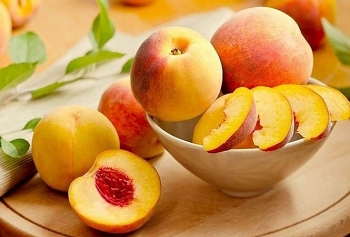 Fact-Check: Peaches Are the Best Fruit to Prevent and Treat Cancer Fact-Check: Peaches Are the Best Fruit to Prevent and Treat Cancer Peaches are classified as one of the best anti-cancer fruids today, according to modern medicine and ancient experience. |
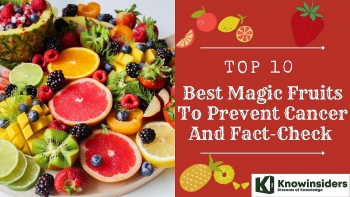 10 Best Magic Fruits To Prevent Cancer And Fact-Check 10 Best Magic Fruits To Prevent Cancer And Fact-Check Fruits are some of the best natural medicines that you can use to help strengthen your immune symptoms, and there are several ones that have ... |
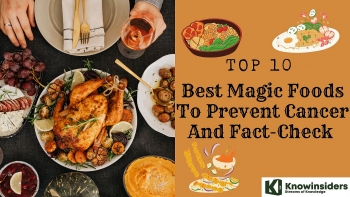 Top 10 Best Magic Foods To Prevent Cancer And Fact-Check Top 10 Best Magic Foods To Prevent Cancer And Fact-Check Foods play an important part in our health and lifestyle. These superfoods can help you greatly in cancer treatment and prevention, and give you a ... |

